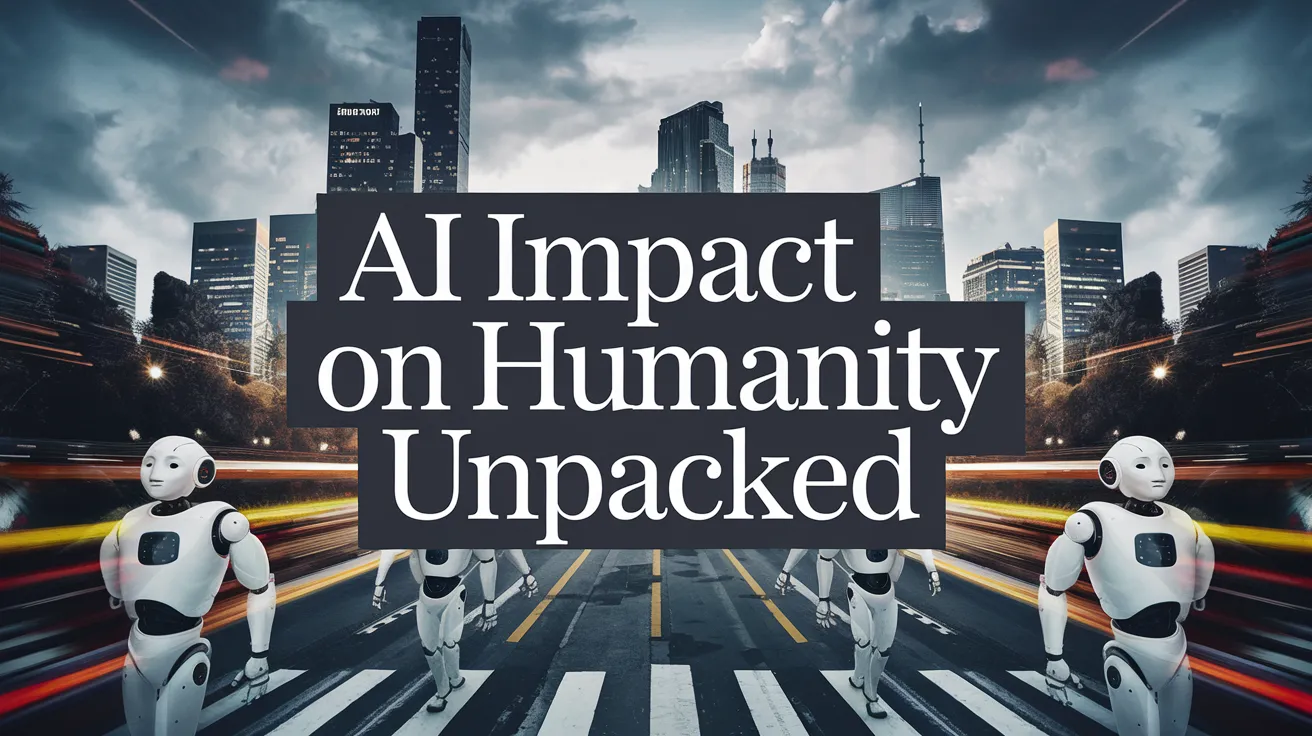AI Impact on Humanity Unpacked

The rise of artificial intelligence (AI) raises crucial questions about its implications for humanity. This topic formed the crux of the panel discussion titled “How is digital technology shaping the human soul?” held on October 1 as part of the Public Culture Project at Harvard University. Program Director Ian Marcus Corbin emphasized that the initiative aims to prioritize humanist thinking in contemporary dialogues surrounding technology.
Expert Insights on Technology’s Role
Corbin raised pertinent questions regarding our identity in relation to technology, asking, “Are we becoming tech people?” This query prompted a range of responses from the panel, revealing a spectrum of opinions on the role of technology in shaping human experiences. Nataliya Kos’myna, a research scientist at the MIT Media Lab, highlighted the duality of technological advancements, stating that while they extend our lifespans, they do not necessarily enhance our happiness or fulfillment. She cited generative AI, and specifically ChatGPT, as a tool that can detrimentally affect human contentment.
The Experiment with ChatGPT
Kos’myna shared findings from a study involving 54 students, where their brain activity was measured as they composed essays. Participants were divided into three groups, with one utilizing ChatGPT, another accessing search engines, and the third relying on their own intellect. The results indicated that students using ChatGPT exhibited notably less brain activity, and upon requesting to quote their achievements, a staggering 83% of the ChatGPT users failed to recall any part of their essays. This striking outcome suggests that reliance on AI diminishes a sense of ownership and engagement with one’s work.
Reconceptualizing Technology
Conversely, E. Glen Weyl from Microsoft Research articulated a more optimistic perspective, asserting that the challenges posed by technology should inspire a redesign of systems rather than lead to disempowerment. He criticized current technology’s commercial focus, proposing a shift towards creating structures that foster community engagement through social media. By engineering systems that prioritize shared experiences over individual consumption, there lies potential for enhancing the collective human experience.
Long-standing Questions on Work and Agency
Moira Weigel, an assistant professor in comparative literature at Harvard, reflected on persistent existential questions regarding work and technology’s role in society. She emphasized the importance of examining whether automation serves to extend human agency or leads to increased control over human actions. Weigel suggested that large language models can offer opportunities to reevaluate our understanding of education and our relationship with technology.
A Spiritual Perspective on AI and Science
Brandon Vaidyanathan, a sociology professor at Catholic University, delved into the philosophical distinction between science and technology, citing Martin Heidegger’s notion of “enframing.” He proposed that genuine scientific inquiry fosters a deeper respect for the subjects of study, advocating for a shift from a perspective that views technology as a means of domination to one that cultivates reverence and connection. Vaidyanathan posed an essential question: Can technology be developed to enhance a sense of spiritual engagement rather than merely extracting resources?
Ultimately, the panel discussion illuminated the multifaceted implications of AI on human existence, revealing both alarming possibilities and hopeful prospects. As humanity advances into the age of AI, it becomes imperative to engage in critical conversations about how we shape and are shaped by the technologies we create.